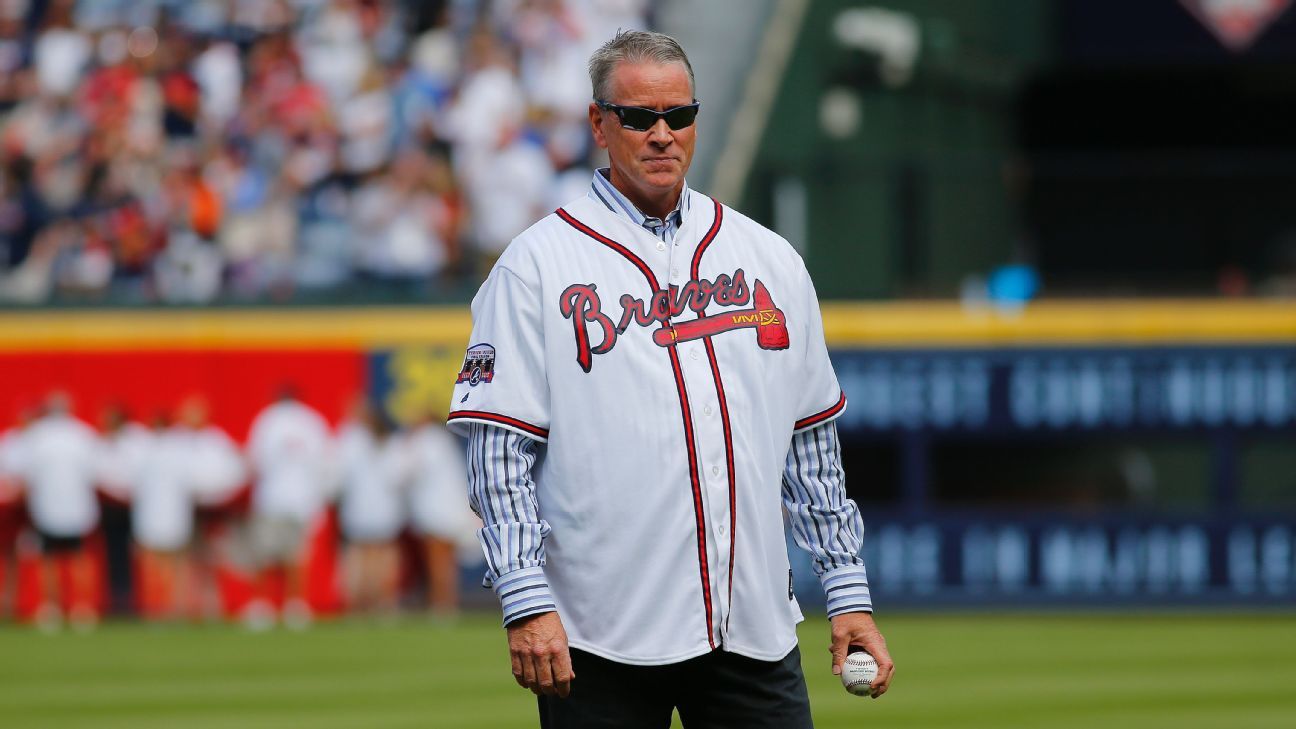
Former Atlanta Braves great Tom Glavine has a word of warning to baseball players expressing concern about their salaries for a potential coronavirus-affected 2020 season: You might take the blame for the sport not resuming.
Glavine, who served as a players' union representative during the baseball strike of 1994-95, compared that situation to the current suspension of play in a story published by The Atlanta Journal-Constitution on Tuesday.
"If it were to come down to an economic issue and that's the reason baseball didn't come back, you're looking at a situation similar to the strike of '94 and '95 as far as fans are concerned," Glavine said. "Even if players were 100% justified in what they were complaining about, they're still going to look bad."
Major League Baseball and the players' union have been negotiating terms to start a shortened season amid the pandemic. Over the weekend, MLB released its return-to-play plans that address expansive COVID-19 testing as well as travel, in-stadium adjustments, on-field changes and a wide array of other issues.
The league also reportedly told players it projects to lose $4 billion even if a season is played. Those financial figures relate to how much players will make this year. The sides had agreed in March that players would make a prorated salary based on games played, but owners voted last week to propose salaries be based on a 50-50 split of revenue.
Glavine said this is a unique situation but that the "revenue split to the union is a scary proposition."
Still, Glavine said players should be careful not to talk too much about their pay, comparing it to interviews he gave during the 1994-95 strike.
"The accessibility thing was a miscalculation on my part," Glavine told the newspaper. "I just felt like if I did an interview on the radio or TV, if I had five or 10 minutes, I could make somebody understand what was going on and come to our side. That just wasn't going to happen."
He also acknowledged the apprehension for players that comes with the possibility of spreading the virus.
"I understand that a big part for all of us in getting back to our normal is to have sports back," he said. "But you can't dismiss a player's concern for his health or his family's health any more than you would dismiss your own concerns.
"... If I was playing today, I wouldn't say, 'Hell no, I'm not playing.' But of course I'd have a concern that once you step out that door and you go back into that world, there's a chance you're bringing something home to your family. It's 100% fair for players, coaches, everybody to be concerned about that."
Glavine, who said he is happy not be a player or have union responsibilities given the crisis, noted that he is looking forward to sports' return.
"I probably miss NHL playoffs more than baseball, at least this time of year," Glavine told the AJC. "It's part of the routine. It's nice to do what you do all day, eat dinner and then sit down and watch some kind of game. Not having games to watch has been hard. But you know, we'll get through it."















 Phone: (800) 737. 6040
Phone: (800) 737. 6040 Fax: (800) 825 5558
Fax: (800) 825 5558 Website:
Website:  Email:
Email: 






